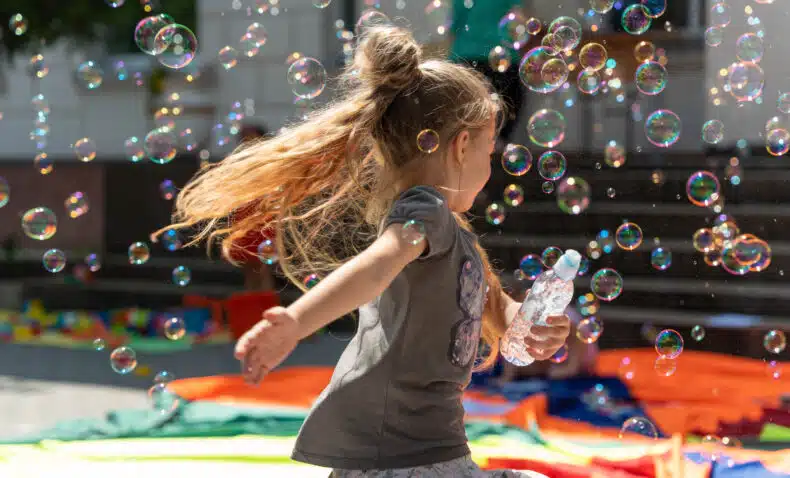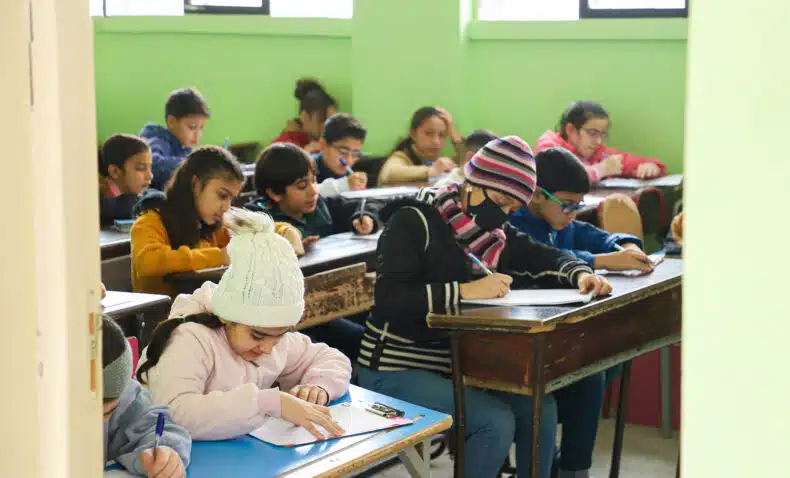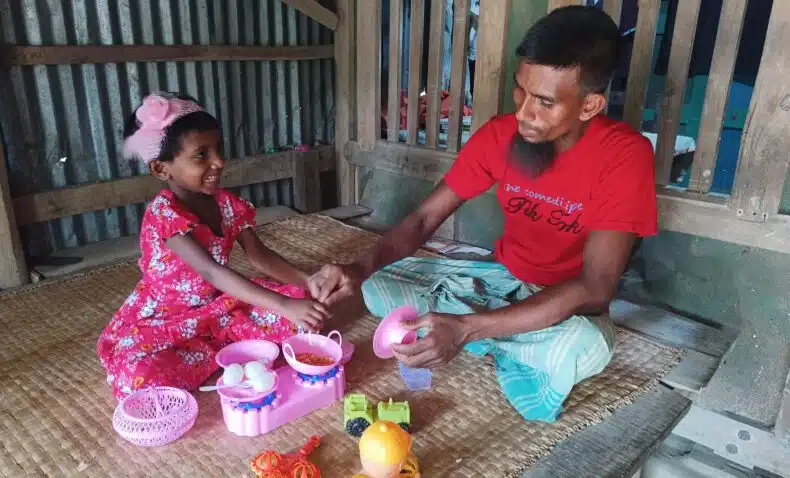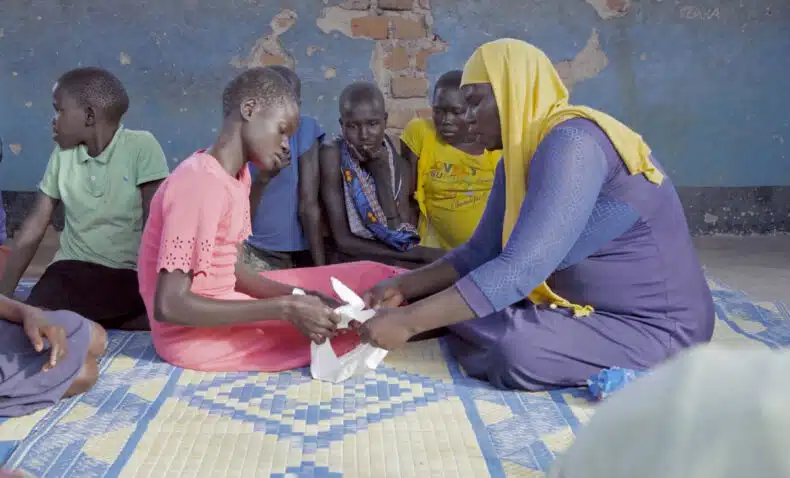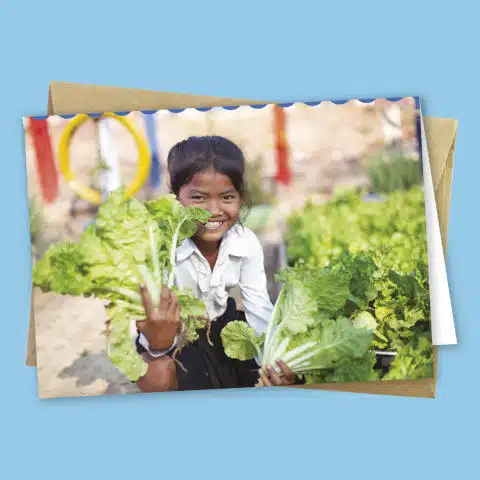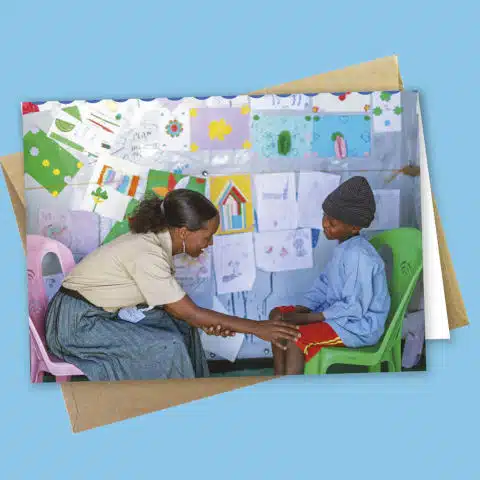Education is the quickest path to girls’ equality
An educated girl can change the future – for themselves, their families, their communities and the planet. Imagine what the world could look like if all girls were able to unleash their talent?
Yet all around the globe, there are more than 130 million girls who are currently denied their right to an education1. That’s 130 million girls who are denied the opportunity to reach their potential and to make choices about their futures. And this number is likely to increase due to the effects of global lockdowns from COVID-19.
In 2020, the scale of global school closures was unprecedented. It is estimated that up to 20 million secondary school-aged girls were pushed out of school as a result of the pandemic. This threatens to undo the years of progress and hard-won gains we’ve made for development and gender equality and it puts girls around the globe at a higher risk of forced marriage, early pregnancy and violence. We cannot afford to wait on getting girls back to school – we must act now to make sure that girls are not left behind.
How Plan International support girls’ education
Together with our youth champions and partners, we advocate for girls’ and young women’s education at a grassroots level and empower girls to be leaders in their own communities. We also campaign for governments to support the right of every child to an education.
We support families with food, scholarships and learning resources to help make sure all children can attend school. We work with parents and communities to raise awareness about the importance of girls’ education. And we address issues such as violence, child marriage and early pregnancy that can prevent girls from finishing their education.
Read our reports and publications.
What are the barriers to girls’ education?
We know that gender discrimination disproportionately impacts girls. Girls are significantly less likely to return to school if they’ve been forced to leave, and already face unique barriers to education – all of which have been exacerbated by the pandemic:
- conflict and gender-based violence which girls experience at home, at school and travelling to and from school
- the global hunger crisis
- child, early or forced marriages and unions
- early pregnancy
- poverty and financial hardship can lead to girls dropping out of school to work and financially support their families
- the cost of school can lead to girls’ education not being prioritised by their caregivers
- lack of safe toilets, menstrual products and clean water at school to help manage menstrual hygiene
- the stigma surrounding menstruation
- gender norms and expectations, which sees girls more likely to be kept home to tend to domestic duties and care for family members.
When girls have the chance to be educated, the barriers to equality are much easier to break.
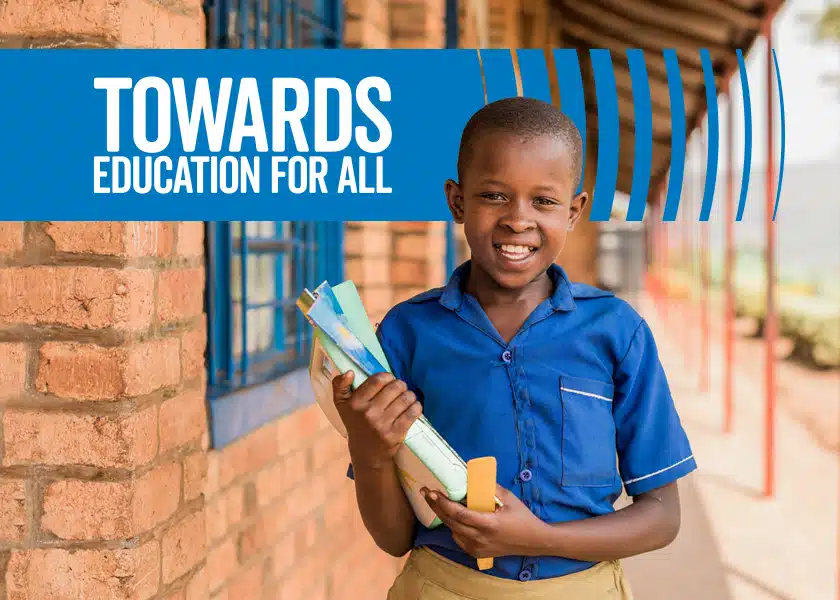
Help girls unleash their talent
Educating girls changes the world
When girls are able to complete their secondary education or equivalent, they are more likely to have control over their income, to marry later, and have a healthier family.
Investing in girls’ education is life-changing for girls themselves – and the ripple effects it can have for entire communities and countries has the potential to truly transform our world.
Here are some examples:
- Educating girls is one of the most effective – and most overlooked – ways to mitigate climate change. For every year a girl stays in school, her country’s climate resilience measurably improves. An education ensures girls can pursue careers in conservation, science and economics, and know what to do in extreme weather events and disasters.2
- Educating girls improves employment opportunities and outcomes, lifts more people out of poverty, and increases a country’s gross domestic product (GDP). We know that if all girls are able to finish their secondary education or equivalent, our global GDP can increase by 10% over the next decade.3
- For every additional year of school that a girl completes, infant mortality rates are reduced by 5 to 10%. If all girls received 12 years of education, the frequency of early births would drop by 59% and child deaths would decrease by 49%.4
- 12 years of education for every girl would reduce child marriage worldwide by 64%. Secondary education also helps to prevent early pregnancy: if every girl completed secondary education, there would be 60% fewer pregnancies in girls under the age of 17 in sub-Saharan Africa.5
- In 2020, 4.1 million of girls were likely to have faced female genital mutilation, and this number is likely to grow to 4.6 million a year by 2030.6
Education is the key to a future where all children have choices and opportunities in life.
By making sure every girl has the opportunity to go to – and complete – school, together we can create an equal world for all.
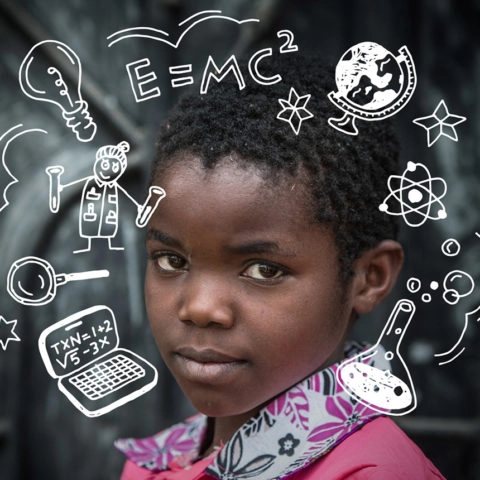
Crisis-affected children in need of support
It’s estimated that 222 million children are missing out on an education because of armed conflicts, forced displacement, climate-induced disasters and protracted crises.7
We’ve joined the global campaign to ask governments to commit to the Education Cannot Wait Fund and support the right of every child to an education.
Join our call to the Australian Government to do more.
Help girls unleash their talent
Supporting children’s learning
With no toilets or washing facilities, Chalika’s school was in a state of disrepair which was putting the children at risk. “The roof had a big hole in it, and the stair railings were broken. There was no fence, so the animals used to come in and eat our plants,” explains Chalika.
Cambodia is one of the poorest and least developed countries in South-East Asia, with low adult literacy and high drop out in primary and secondary schools. In rural communities there is still a significant need for access to quality infrastructure like safe school buildings, toilets and water facilities.
I want to be a teacher, so I can share my knowledge with children and make the school safer for students.In collaboration with the Prudence Foundation, Plan International is working across the region to protect students and teachers against the impact of natural disasters through the Safe School programme. Chalika’s school was selected to be part of the project and has been fully renovated, with repairs made to the roof and a new fence constructed around the grounds.
Photo: Chalika, 10, now feels safe at school. © Plan International
Finding the girls who lost out on learning
13-year-old Ramatou went to school for the first time last year. As the eldest child in her family, she is responsible for taking care of her three younger sisters and helping her parents with the farm work, so school was not a priority. “I was unhappy to see my friends go to school while I stayed at home,” she shares.
From a rural community in Maradi region, Ramatou faces additional barriers to education due to the conservative social norms which define a woman’s role in society, which often restricts girls’ right to education.
To tackle the learning crisis in Niger, Plan International’s accelerated learning programme is supporting the government to provide out-of-school children with an opportunity to access education at purpose built learning centres.
The curriculum delivered at the centre focuses on literacy, numeracy, maths and life skills to help children transfer into the formal education system. “I learnt to read and write in my mother tongue, Hausa,” says Ramatou. “I was very happy to go to school, I made new friends and my parents were proud of me because I was second in my class, and I was also proud because I was able to enter primary school in the 5th grade.”.
Thankfully, Ramatou’s dedication and hard work has paid off and she is now in 6th grade and excelling at school. “I came 27th out of 60 students in the first semester, and in the second semester I’m 7th in my class. I would like to become a doctor later on to help the women in my village.”
As part of Plan International’s Bunkasar Diya Mata (Development of Young Girls) project, we are supporting 2,400 out-of-school children aged 9-12 to receive 9 months of intensive basic education at purpose built accelerated learning centres in their communities. Once completed, they are reintegrated into the formal education system.
Photo: Ramatou, 13, is now in primary school thanks to accelerated learning classes. © Plan International / Fabien Akakpo

